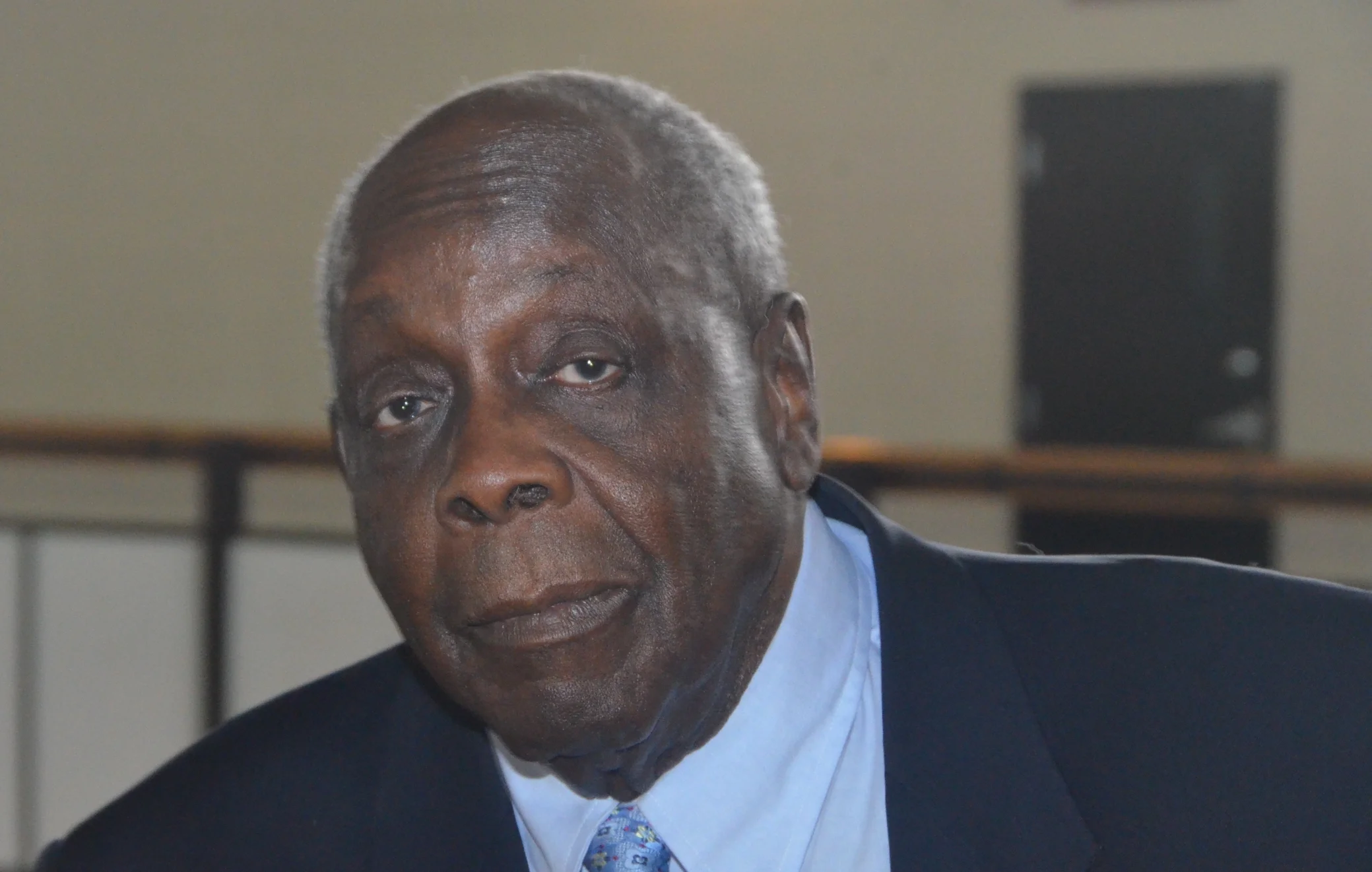George Carter 'was in a league of his own'
June 27, 2018
Of the 223 Osgoode Hall Law School 1948 graduating class, George Carter stood out as the only Black.
As just the second in the law school’s history after Frederick Davis made history 48 years earlier and was the second Black lawyer to be called to the Ontario Bar, Carter went on to become Canada’s first Black-born judge a decade after the late Maurice Charles broke the colour barrier in 1969.
The trailblazer passed away on June 7 and was buried five days later at Beechwood Cemetery.
He was 96.
Roy McMurtry appointed Carter to the Bench in 1979 during his tenure as attorney general.
“George was an excellent judge who served with distinction,” said McMurtry who is also a former Ontario Chief Justice, Canadian high commissioner to the United Kingdom and York University chancellor. “He had a good and long life and I am sorry we have lost him.”
McMurtry was instrumental in the dedication of a bronze bust of Carter that was unveiled in April 2014 in the Osgoode Hall Law School library.
Retired provincial court judge Vibert Lampkin said Carter was fair, honest and dedicated.
“He was really a well-known lawyer and very well established when I came here at age 34,” said Guyanese-born Lampkin who was appointed to the Bench in 1982. “I was in Toronto for three years before being assigned to Newmarket where I spent the next 22 years before retiring. Our paths didn’t cross often, but it was obvious that he was well respected by the judiciary and all who appeared before him.”
The product of Barbadian immigrants who came to Canada in 1920, Carter – the first of 14 children -- gained his inspiration from his parents who stressed the value of education, his Jewish schoolmates from whom he developed camaraderie and relationships and the Universal Negro Improvement Association (UNIA) centre in Toronto which was a meeting place for the city’s Black community to gather and have their spirits lifted by such powerful leaders as Paul Robeson, A. Phillip Randolph and Marcus Garvey.
A founding member of the Toronto Negro Veterans Association, the National Black Coalition of Canada and the Toronto Negro Business & Professional Association, Carter played a significant role in the establishment of Legal Aid Ontario and was very familiar with the role and practice of land registry law.
“Land registry in Ontario is very important and in the old days before there were computers, you really had to have the mind and understand the procedures if you were going to be a lawyer in real estate,” historian Dr. Sheldon Taylor said. “He had that ability and I believe he learned it from B.J. Spencer-Pitt (he was Ontario’s fifth Black lawyer after Robert Sutherland, Delos Davis and his son Frederick, and Lionel Cross). That was so important because it taught him about Toronto and the significance of touching documents and books.”
Carter, who graduated with an undergraduate degree from the University of Toronto in 1944, articled with Spencer-Pitt who mentored many young Blacks and also provided free legal service to members of the African-Canadian community.
He paved the way for many in the legal profession, including Justice Michael Tulloch who, in 2012, became the first Black judge to be appointed to the Ontario Court of Appeal.
“Although I never appeared before him when I was a lawyer, I certainly did know of him and I can say that he was a great inspiration to me,” Tulloch, a 1989 Osgoode Hall graduate, said. “To me, he was in a league of his own and he will be remembered as paving the way for my generation of Black lawyers and judges.”
The recipient of many accolades, including a Queen’s University honourary doctorate and a Harry Jerome Lifetime Achievement Award, Carter – a former Ontario Black History Society Board member -- is survived by his children Linda, Evan, Jacquie and Ralph, six grand-children and one great-grandchild.
Linda Carter documented her father’s life in ‘The Making of a Judge’ that tells the story of man who emerged from humble beginnings to serve in the Canadian Infantry Corps, work as a porter which was the only job available to Black men in his era, graduate from law school and then serve with distinction on the Bench in Ontario for 16 years before retiring in 1996.






